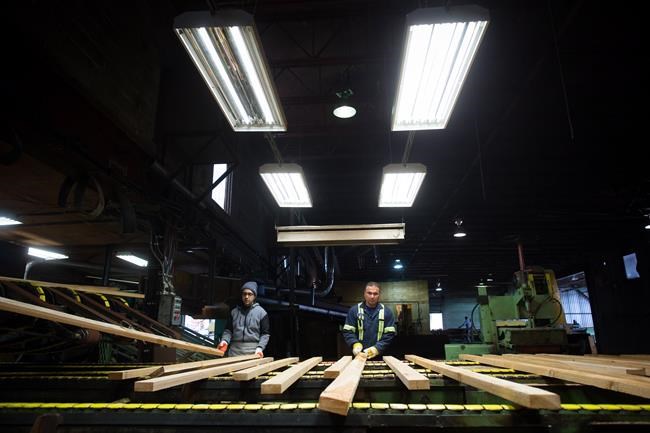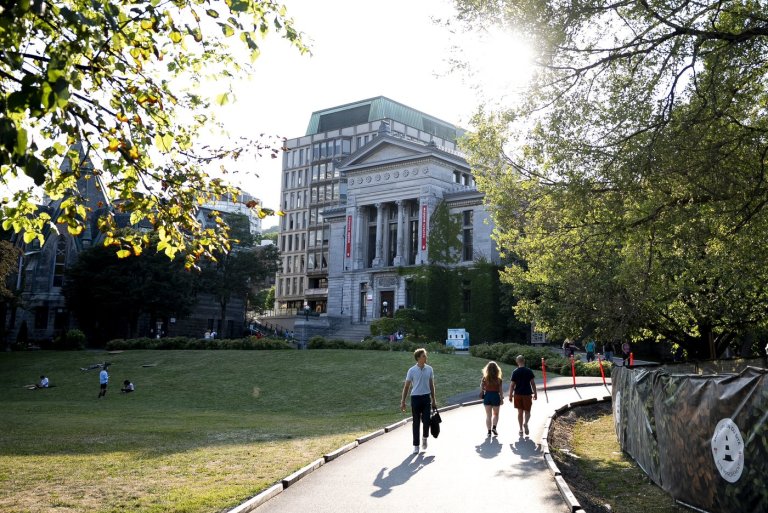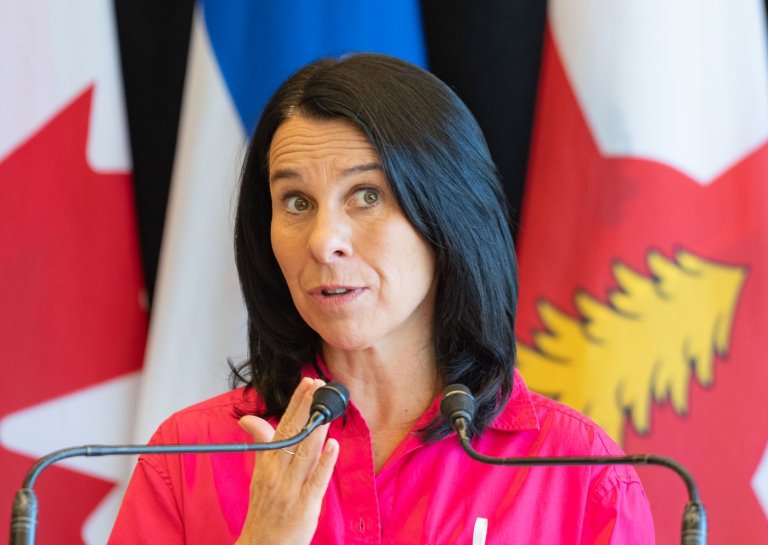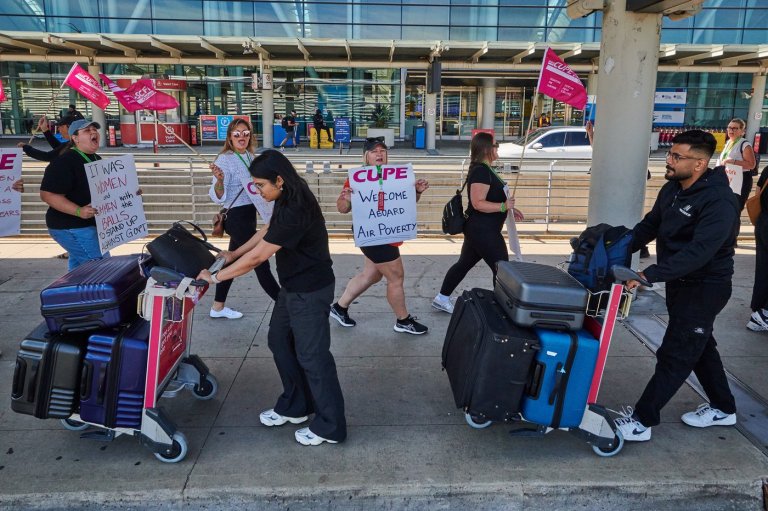
The Tuesday news briefing: An at-a-glance survey of some top stories
Highlights from the news file for Tuesday, April 25
———
BRACE FOR SOFTWOOD JOB LOSSES, MINISTER WARNS: The federal government is reaching out to reassure forestry workers, lumber producers and others facing the impact from a fresh softwood trade war that it stands ready to help cushion what it suggests will be a heavy blow. The U.S. is imposing significant duties of up to 24 per cent on lumber imports — the latest flare-up in Canada’s escalating trade skirmish with President Donald Trump’s administration. Natural Resources Minister Jim Carr acknowledged Tuesday that job losses are likely in the offing, saying Employment and Social Development Canada is standing by to provide essential services for anyone who is impacted. Available ESDC supports include employment insurance, career counselling, retraining and provincial skills development programs, said Carr, noting Canada is no stranger to softwood disputes with the U.S., and has always prevailed in the past. Trudeau, meanwhile, said earlier Tuesday that the Canada-U.S. relationship is bigger than any one trade irritant — and that Canada needs to impress upon the U.S. that both countries would suffer from a “thickening” border.
———
TRADE MINISTER COURTS CHINA FOR SOFTWOOD: Trade Minister Francois-Philippe Champagne says selling more Canadian softwood lumber to China is one answer to the latest trade dispute with the U.S. Speaking from Beijing, Champagne says Canada’s pitch is resonating in China because softwood is an environmentally friendly building material that can satisfy a need for more housing without higher greenhouse gas emissions. The minister has several Canadian lumber executives in tow as he continues a major trip to China that includes a high-level economic dialogue with its vice-premier. The U.S. has announced duties of up to 24 per cent on lumber imports, the latest flare-up in the decades-old softwood lumber feud between Canada and its largest trading partner. Champagne says diversifying Canada’s softwood lumber customer base will strengthen its forestry industry. However, Wenran Jiang, a University of Alberta expert on China, says Canada needs a better plan on engaging economically with China rather than running to it whenever it has a falling out with the U.S.
———
GREAT-WEST LIFECO TO CUT 1,500 JOBS: Great-West Lifeco will cut 1,500 positions over the next two years in response to changing technology and customer expectations, the financial services company said Tuesday. The cuts — which will be mostly back-office functions across the organization — are equal to 13 per cent of the Winnipeg-based company’s 12,000 employees in Canada. “Not only are customers demanding greater digital and mobile access to financial services, they are becoming increasingly cost-sensitive,” Great-West president and CEO Paul Mahon told analysts on a conference call. The company expects to lower its annual costs by about $200 million, before taxes, by the end of March 2019. About two-thirds of the savings will be from the workforce reduction, and the rest primarily from reduced IT spending with some real estate savings. About 1,000 of the job cuts will happen this year with the remaining 500 positions to be eliminated more gradually throughout 2018 and early 2019.
———
NDP CHALLENGES TRUDEAU OVER POT REMARKS: The NDP is challenging Prime Minister Justin Trudeau’s assertion that he wants to make things more fair for those facing pot-possession charges once marijuana becomes legal. Leader Tom Mulcair said Tuesday his party has repeatedly called for an amnesty on charges for possessing small amounts of pot, but nothing has been done. Trudeau admitted to smoking pot as a sitting MP and faced no consequences, and yet doesn’t seem to care about Canadians who face charges even though a plan is in place to revoke the prohibition, Mulcair said during a news conference. Trudeau shared a story Monday during a Vice News interview about the time his late brother Michel found himself facing marijuana possession charges. Trudeau says his father, former prime minister Pierre Trudeau, was able to bring the family’s resources to help make the charges go away. Trudeau admits other Canadians, including marginalized people, are nonetheless treated unfairly in the legal system. The Prime Minister’s Office has yet to elaborate on what the prime minister might be talking about when he described a “process.” A blanket pardon for those with pot convictions is not “on the agenda at the moment,” Public Safety Minister Ralph Goodale has said.
———
LAWMAKERS SUGGEST FORMER TRUMP AIDE BROKE LAW: U.S. President Donald Trump’s former national security adviser, Michael Flynn, appeared to violate federal law when he failed to seek permission or inform the U.S. government about accepting tens of thousands of dollars from Russian organizations after a trip there in 2015, leaders of a House oversight committee said Tuesday. The congressmen also raised new questions about fees Flynn received as part of $530,000 in consulting work his company performed for a businessman tied to Turkey’s government. The bipartisan accusations that Flynn may have broken the law come as his foreign contacts are being examined by other congressional committees as part of investigations into Russian meddling in the 2016 election and potential ties between Trump associates and the Kremlin. Congress returned earlier this week from its spring recess, and Tuesday’s announcements reflected renewed interest on Capitol Hill.
———
FIRST BISON CALVES BORN IN BANFF BACKCOUNTRY IN 140 YEARS: For the first time in more than 140 years, bison calves have been born in Banff National Park’s backcountry. Parks Canada says the first calf was born on Saturday in the Panther Valley area and two more have since made their debut. Vast herds of the ruminants roamed the mountainous landscape for thousands of years, but they were brought close to extinction because of overhunting in the 1800s. In February, Parks Canada moved 16 of the beasts from east of Edmonton to a penned pasture in a remote area of Banff as part of a $6.4-million reintroduction project. The herd that made the 400-kilometre journey by truck and helicopter included 10 pregnant cows and six young bulls. The bison are to reclaim their historic role in the ecosystem when they are released in the summer of 2018 into a 1,200-square-kilometre zone.
———
SIX NOVA SCOTIA GROUP HOME DEATHS CONNECTED TO VIRUS: Public health officials have linked six deaths at a Halifax nursing home to an ongoing outbreak of respiratory illness. The Nova Scotia Health Authority said it was notified April 4 about a likely outbreak of Respiratory Syncytial Virus (RSV) on one floor at Arborstone Enhanced Care in Armdale, and it spread to a second floor a week later. Dr. Trevor Arnason, the medical officer of health for the Halifax area, said Tuesday that more than 30 people have been hit by the virus, and six have died. “The number of deaths in this case is a bit unusual,” Arnason said during an interview. But he said such outbreaks are not unusual, and RSV is especially dangerous to people with compromised immune systems and those at end-of-life stages.
———
FORMER CABINET MINISTER SUBJECT OF JUDICIAL COUNCIL COMPLAINT: A review by the Canadian Judicial Council into the actions of former public safety minister Vic Toews may not take too long. Toews, who is now a judge in Manitoba, is being investigated after the federal ethics commissioner ruled he violated conflict-of-interest rules shortly after leaving politics. The judicial council says 80 per cent of its investigations are concluded within three to six months, although some — including those that involve full public hearings — can take much longer. Last week, ethics commissioner Mary Dawson ruled Toews lobbied and consulted on behalf of two Manitoba First Nations within months of his leaving office. Dawson said that contravened rules that prevent former ministers from consulting or lobbying on issues which they dealt with while in office. The judicial council received a complaint about the matter on the weekend and will investigate whether the issue affects Toews’s ability to continue to be a judge.
———
MAN CHARGED AFTER SEXIST SLUR ON TV REPORTER: A 27-year-old Newfoundland man has been charged for allegedly yelling a sexually explicit phrase at a TV journalist, who went to police with the complaint because she said she has had enough of being harassed with the vulgar comments. NTV reporter Heather Gillis was interviewing a city councillor at a St. John’s landfill Monday when a grey truck drove by and one of two men inside allegedly called out a phrase — often abbreviated to “FHRITP” — that has repeatedly been directed at female television reporters and videographers. Gillis managed to snap a picture of the truck, capturing the licence plate, which she posted on Twitter with the comment that she was “publicly shaming” the driver. Police saw the post and encouraged Gillis to contact them. Sgt. Paul Didham of the Royal Newfoundland Constabulary said Tuesday that officers tracked down the truck’s driver and charged him with causing a disturbance in a public place. He is due in court in June 1.
———
HALIFAX TO EXAMINE USE OF CORNWALLIS NAME: Halifax council has voted to take a closer look at using Edward Cornwallis’s name on city property. The city’s founder remains notorious for issuing a bounty on the scalps of Mi’kmaq people in 1749. After a lengthy debate today, councillors voted 15-1 for a staff report to create an expert panel to weigh in on commemorations of Cornwallis. Coun. Shawn Cleary says he put forward the motion after being moved by the words of Halifax’s poet laureate on the issue. A similar proposal last year was narrowly defeated. Cornwallis Junior High was renamed in 2011, but the Nova Scotia governor’s name remains on city parks and streets.
Join the Conversation!
Want to share your thoughts, add context, or connect with others in your community?
You must be logged in to post a comment.

















